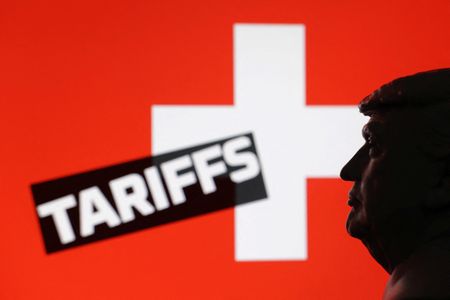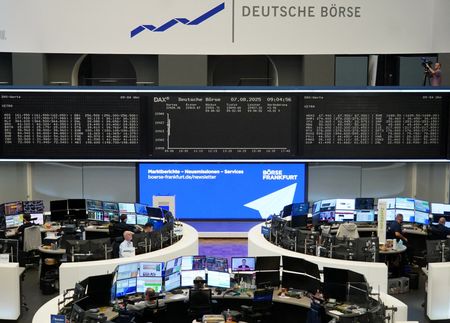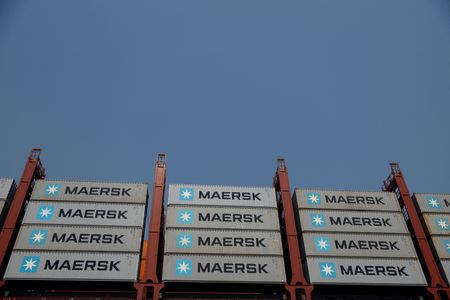By John Revill
ZURICH (Reuters) -Switzerland’s government will hold an emergency meeting on Thursday to decide its next move after its president returned home empty-handed from an 11th-hour trip to Washington aimed at averting a crippling 39% U.S. import tariff on Swiss goods.
An urgent meeting of the seven-member Federal Council – Switzerland’s governing cabinet – will take place in Bern in the early afternoon, the government said a post on X.
Swiss President Karin Keller-Sutter left Washington on Wednesday without a new deal and did not meet with U.S. President Donald Trump or any of his top trade officials, two sources told Reuters.
Her proposal for a 10% tariff rate was rejected by U.S. officials, one of the sources added.
Negotiations between Switzerland and the United States over tariffs will continue, but more time is needed to strike a deal, according to a Swiss source familiar with the discussions.
The Trump administration has not closed the door to a solution, said the source, who believed a deal would ultimately materialise.
It was still too early to say, however, when the tariff impasse would be resolved, said the person, who spoke on condition of anonymity due to the sensitivity of the matter.
Keller-Sutter said on Wednesday she had a “very good meeting” with U.S. Secretary of State Marco Rubio, with Swiss sources describing the exchange as “constructive” and conducted in a friendly atmosphere.
Following the expiration of Trump’s tariff deadline, the new import duties took effect at midnight Washington time (0400 GMT).
“Billions of dollars, largely from countries that have taken advantage of the United States for many years, laughing all the way, will start flowing into USA,” Trump wrote on his social media platform Truth Social.
Dozens of countries that have failed to strike deals with Washington are facing new tariff rates that will replace a temporary 10% levy in place since April.
At 39%, the new rate applied to Swiss goods is among the highest implemented by Trump in his push to reshape global trade to the United States’ advantage.
Switzerland was stunned by Trump’s decision last week to apply the steep rate.
Industry associations and economists have warned it will inflict major damage on the country’s export-orientated economy, threaten tens of thousands of jobs, and curtail economic growth.
Switzerland removed tariffs on nearly all imports in 2024, and had virtually free access to its markets for U.S. products. But Keller-Sutter said last week that Trump was focused on its trade surplus with the United States, which amounted to 38.5 billion Swiss francs ($48 billion) last year.
Swiss stocks are expected to take a hit, said online trading platform IG.
“We can expect Swiss markets to come under pressure early on Thursday – the sight of the president flying home without even meeting her U.S. counterpart will come as little surprise, but is still a disappointment,” said IG broker Chris Beauchamp.
“Efforts no doubt continue to make a deal but, given the nature of the trade surplus, any quick resolution is unlikely.”
($1 = 0.8047 Swiss francs)
(Reporting by John Revill in Zurich; Additional reporting by Dave Graham; Editing by Joe Bavier)










